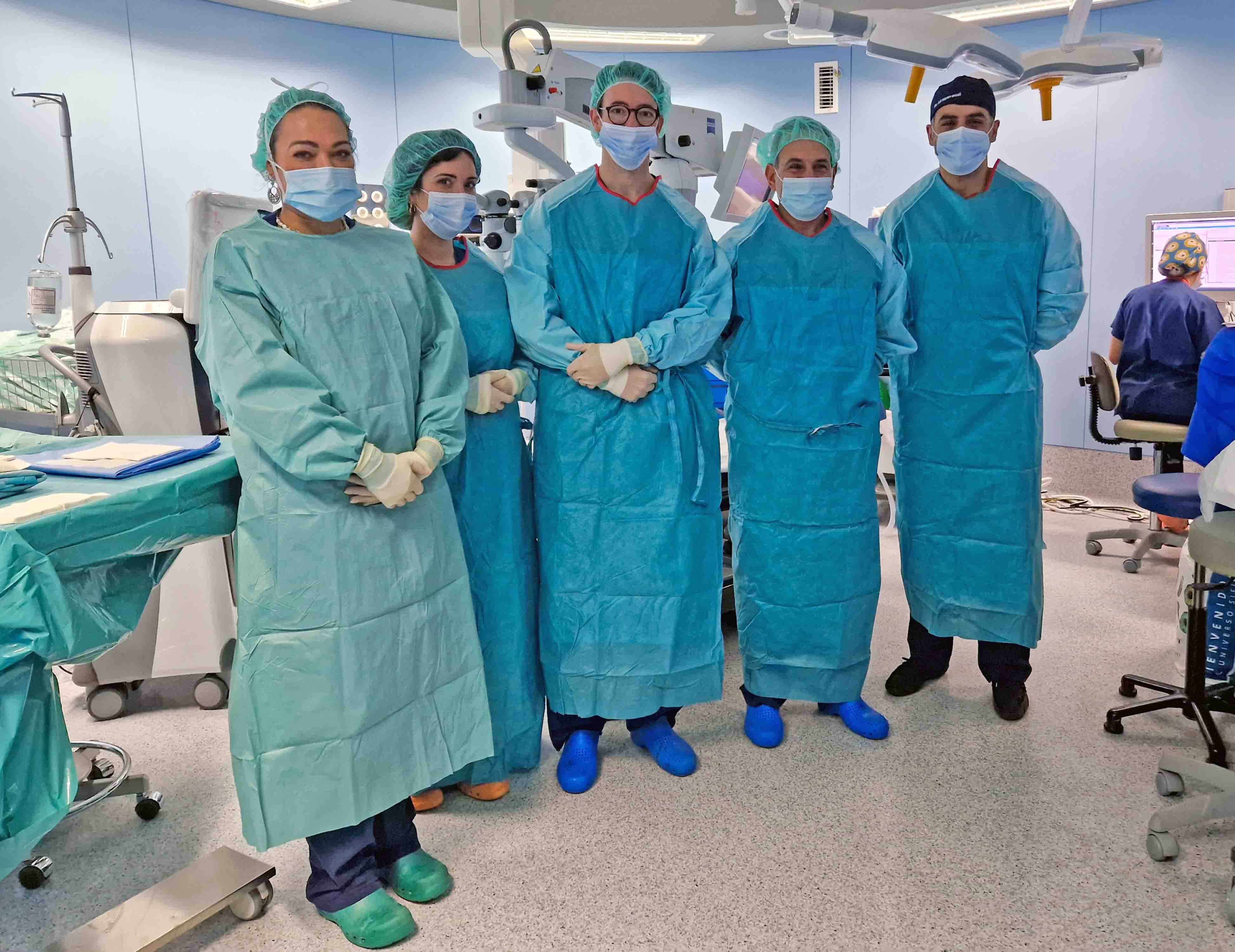Quirónsalud Marbella Hospital now performs Descemet membrane endothelial keratoplasty (DMEK)
DMEK is a type of surgery where the damaged or sick portion of the cornea is replaced by healthy tissue from a donor.

Quirónsalud Marbella Hospital has now included Descemet Membrane Endothelial Keratoplasty in the portfolio of services of its Ophthalmology Unit. The cornea is a transparent layer of tissue that covers the front area of the eye and plays a key role to provide clear eyesight. DMEK is a type of surgery where the damaged or sick portion of the cornea is replaced by healthy tissue from a donor. Subject to the specific condition in each patient, doctors can replace the entire cornea or just a portion of it, such as the endothelium, which is the most inner layer in charge of keeping the cornea transparent.
"The main challenge of the DMEK (Descemet Membrane Endothelial Keratoplasty) technique is careful handling of the replaced tissue, which is extremely thin and fragile, requiring a high level of precision from the surgeon. Additionally, this type of replacement surgery requires a minimum incision without the need of sutures, a fact that helps speed up recovery time but makes surgery more technically demanding", explains Doctor Ramón Calvo Andrés, a Specialist Ophthalmologist in ocular surface disease and refractive surgery and the coordinator of the eye tissue bank in the Valencia Region, who has worked in close cooperation with our hospital team to perform this procedure for the first time, thus setting a milestone in our Malaga hospital.
DMEK is ideal for people whose remaining cornea is healthy, as only the damaged layer is replaced while the remaining healthy portion of the cornea is untouched, unlike what happens with conventional surgery where the entire corneal tissue is replaced. "This is an excellent alternative for patients whose corneas have lost transparency due to endothelial diseases, such as Fuchs’ Endothelial Dystrophy or ocular endothelial postsurgical failure. These issues cause the cornea to swell, leading to blurred and uncomfortable eyesight", explains Doctor Nabil Ragaei, Head of the Ophthalmology Unit of the Quirónsalud Marbella Hospital.
The DMEK technique was successfully performed for the first time at our Marbella hospital at the beginning of February in a patient with highly acute visual deficiency due to a corneal endothelial decompensation.
Advantages of DMEK:
• Improved eyesight quality: due to the fact that only the affected layer is replaced, eyesight can be more naturally recovered.
• Faster recovery: patients appreciate an improvement in only a few weeks, in comparison to the months required when a full cornea transplant is performed.
• Lower risk of tissue rejection: as the amount of tissue is very small, the risk that the patient’s immunological system will reject the new tissue is lower.
• Less sutures and less discomfort: unlike traditional cornea transplants, DMEK does not require suture, which reduces discomfort and improves cornea stability.






















